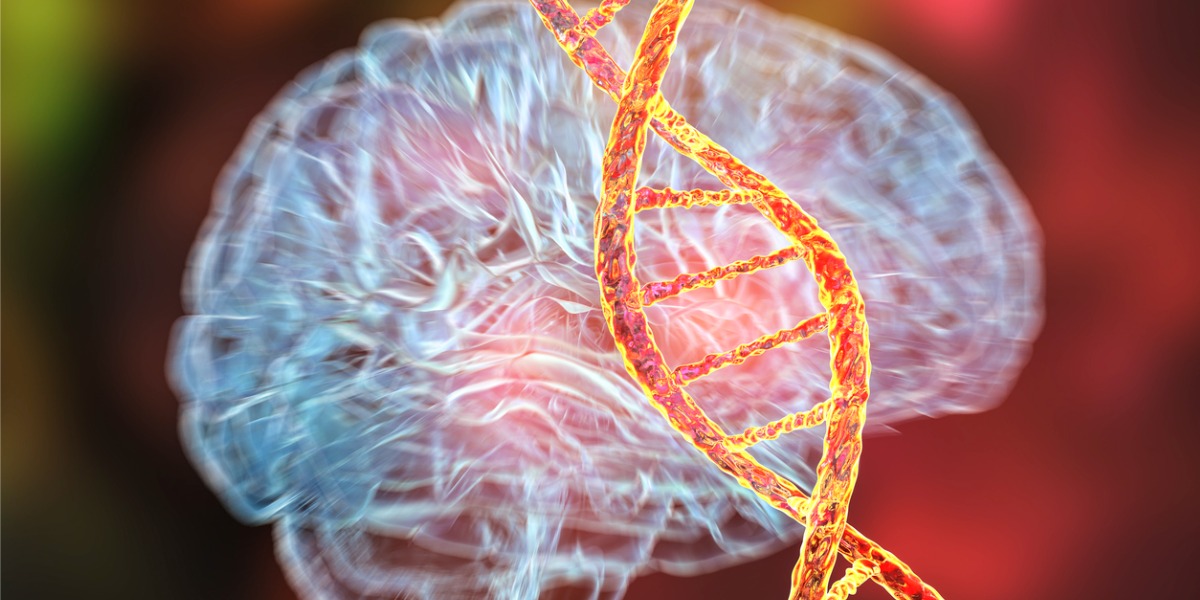Mental health experts have long understood that our genes can play a significant role in determining a person’s risk for developing depression, a.k.a. major depressive disorder. However, until relatively recently, it was difficult to determine with certainty which specific genes were associated with depression.
In the decades since scientists first sequenced the human genome, they’ve made great strides in the ongoing effort to decode the secrets of our genetic makeup. This effort includes research into the genetic causes of – and possible gene-focused treatments for – various medical issues and mental health disorders, including depression.
In January 2024, the journal Nature Genetics published a study that may expands our understanding of the relationship between genes and depression. This large-scale, international research project identified 50 new genetic loci (specific spots on a chromosome) and 205 genes that linked with depression and depressive disorders.
An International Effort
The international aspect of the Nature Genetics study wasn’t limited to the members of the research team. The study included data from 21 study cohorts, with just over 991,000 participants. While most of the participants live in the United States, their ancestry connected them to the following backgrounds:
- African (36%)
- East Asian (26%)
- South Asian (6%)
- Hispanic/Latin American (32%)
The team also reviewed two studies in which 70 percent of participants were of European ancestry. In a release about the study, lead author Karoline Kuchenbaecker, PhD, said:
“Many genes previously found to be linked to the risk of depression might only actually affect depression risk in people of European origin. So, in order for genetic research to contribute to new drugs that can help people of all ancestries, it is vital that our genetic datasets are suitably diverse.”
The researchers noted that the backgrounds of their participants – including more than 10,000 women from China – made this study the largest genome-wide association study (GWAS) of major depressive disorder outside Western nations.
This approach allowed researchers to note culture-specific risk factors. For example, prior studies of people with European ancestry established that high body mass index (BMI) increases risk for depression. But research indicates that this is not true for individuals of East Asian descent.
The team observed:
“Investigating causal relationships using Mendelian randomization (MR) in diverse ancestry groups and in different disease subtypes is important to ensure generalizability and to distinguish between biological and societal mechanisms underlying the relationship between a risk factor and the disease.”
In addition to identifying additional depression-related genes, the team found the following:
- The overlap of depression-related genes among people from different ancestral backgrounds is about 30%, which underscores the need for additional studies with a diverse participant base.
- One of the newly identified depression-related genes (NDUFAF3), includes a protein that can be affected by the diabetes drug metformin. This suggests it may be an ideal candidate for assessing the effectiveness of metformin as a depression medication.
Dr. Kuchenbaecker observes:
“This is a first stage discovery effort, so more work will be needed to confirm these new targets, but finding them in the first place has been a huge and vital challenge, especially for a disorder where new medications are so urgently needed.”
Prior Research on Genes and Depression
In July 2018 – about four and a half years before the release of the Nature Genetics study – Frontiers in Psychiatry published a paper that reviewed various genetic factors that influence risk of developing major depressive disorder (MDD). An international team led by Maria Shadrina, PhD, of the Russian Academy of Sciences led the study.
Shadrina’s team reported the following about genes and depression:
- A meta-analysis involving twins determined that heritability accounts for about 37% of risk for depression.
- Family studies indicate that parental depression can increase their risk of depression by in children by 200%-300%.
- Heritability appears to exert a stronger influence on the development of more severe forms of depression.
- The influence of genes on depression “appears to be extremely complicated and involves a large number of loci.”
- Each individual gene linked with depression likely makes “a small contribution” to the development of depressive disorders.
- A “small but growing body of evidence” indicates that dysfunction on the mitochondrial level may be a causal factor for major depressive disorder.
- Epigenetic changes (which are alterations in how a gene functions, without impacting structure) may exert considerable influence on depression risk.
One of the challenges of fully assessing the genetic influence on depressive disorders, Shadrina’s team reported, is that some types of research require brain tissue that can only be retrieved after death. To overcome this obstacle, the team recommended increased use of animal models.
How Can Genetics Influence Treatment?
It’s difficult to predict the potential impact of genetic research on depression treatment, since so much work remains in the effort to fully explore the human genome. But in broad, general terms, continued studies on the genetics of depression may lead to two types of advances:
- An improved ability to diagnose depression and identify individuals who have an elevated risk of developing various depressive disorders
- The development of targeted medications and other treatment techniques that can effectively address the genetic/biological aspects of depressive disorders
We talk about these advances as happening in the future, but in fact, progress is already underway.
Genes and Depression: Current Studies
For example, in May 2022 the JAMA Network published a study from the U.S. Department of Veterans Affairs (VA) that explored the benefits of genetic testing for depression. The study involved more than 1,900 participants at 22 VA facilities over a period of 24 weeks. Here’s how it worked:
- All participants diagnosed with major depressive disorder and completed at least one prior treatment session at a VA facility.
- All participants completed genetic tests that focused on how their bodies metabolize medications.
- Half the participants (the pharmacogenomic-guided group) received results of these tests within a few days, and used information to guide their use of medication.
- The other half (the control group) received results after the study, meaning clinicians didn’t use them in treatment.
At the end of the study, the VA researchers concluded:
- Genetic testing reduced the prescription of some medications due to predictions of how they’d interact with genes
- The symptom remission rate among participants who completed genetic testing was significantly better than the non-testing group at week 8 and week 12.
- At weeks 18 and 24, the remission rate among the testing group remained slightly better than among the non-testing group, but the difference wasn’t statistically significant.
- At week 24, the testing group showed greater reduction in symptom severity than the non-testing group.
In a VA release, the study’s leader, David Oslin, MD, acknowledged that his team’s finding were not “a slam dunk,” but he was optimistic that the results justify continued research in this area.:
“An important outcome of the study is that only about 15% to 20% of the patients had genes that would significantly interfere with the prescribed medication. But I think the results … will encourage providers to test patients and get this genetic information. Future research should explore if there are subgroups of patients who would benefit more from testing.”
It’s important to emphasize that the genetic testing in the VA study didn’t assess how certain medications impacted specific genes related to depression. The VA study evaluated how quickly or slowly medications metabolized, rather than how they affected the genes.
As Oslin explained, this doesn’t mean that the genetic tests weren’t valuable, as they were still able to help providers determine which types of drugs could be more likely to have a positive effect:
“[The test is] not telling me that this is a good medicine for the patient. It’s telling me not to prescribe this medicine, or perhaps to adjust the dosing, because the patient doesn’t metabolize it well.”
As genetic research continues, future tests will likely focus on the direct impact of individual prescription drugs on specific genes. Ideally, this will lead to improved treatment outcomes and the expansion of precision medication within the mental health field.


 Gianna Melendez
Gianna Melendez Jodie Dahl, CpHT
Jodie Dahl, CpHT